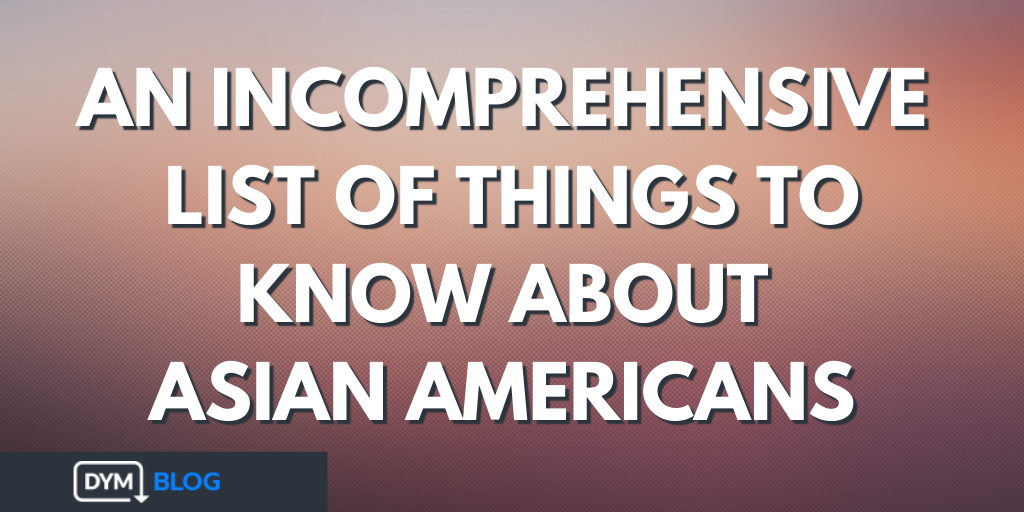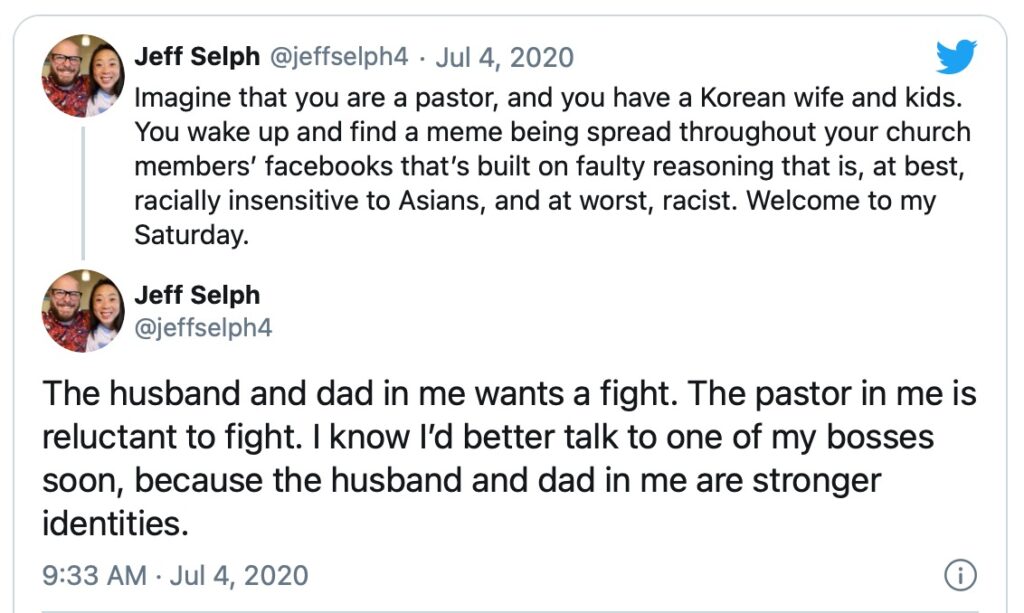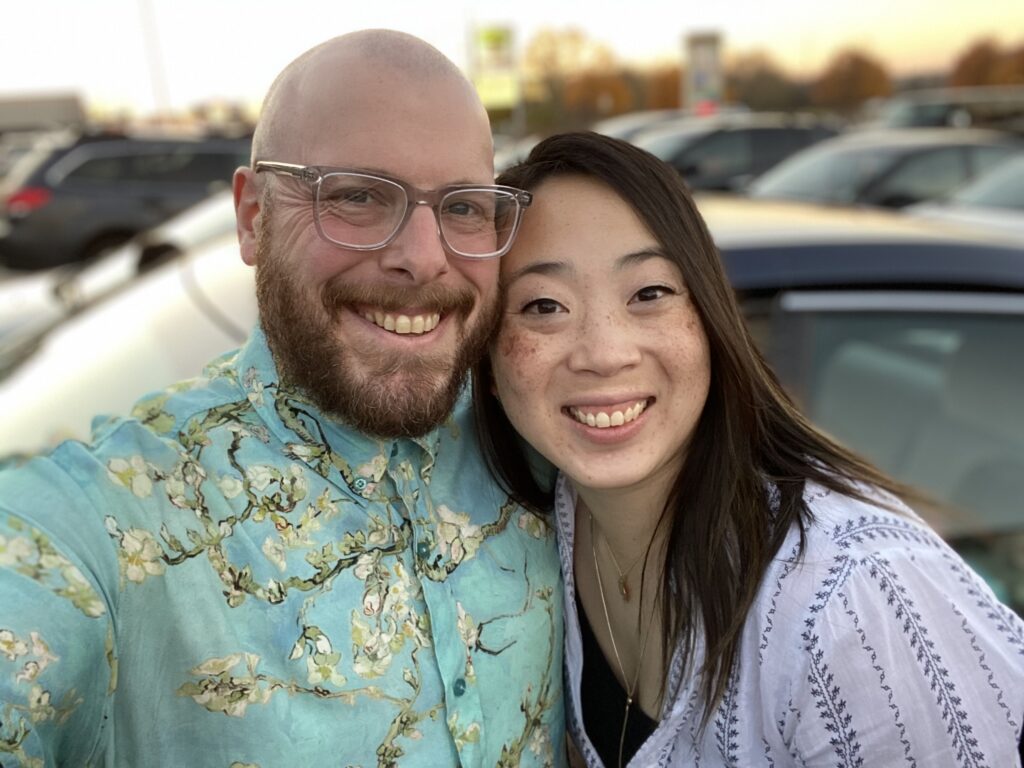
This was written on July 4, 2020. It wasn’t the first time we had noticed anti-Asian sentiments from those in the church, including our own, but it somehow still blindsided us.

When you grow up as a minority in a prominently white area, you get used to rationalizing away offense, like it’s not as big of a deal as you’re making it. It’s a defense mechanism. It protects you from the greater pain of confronting it head on and then being dismissed by people who are supposed to care. So, we had spent several months downplaying it. Surely it wasn’t our church. No way was it people we knew. They must be better, because they know us, and they’d never consciously harm us.
We failed to think about becoming collateral damage in their efforts to let freedom ring and stick it to the man. So did they. Now we know, and to the best of our ability, we’ve tried to let them know with as much grace as we can borrow from God. We needed God’s grace, because there were days when we were running low. When we survey the attitudes of the American Church regarding anti-Asian hate, which shows up both in offensive words and suffocating silence, we realize there are important things we wish everyone knew. So, when we were asked to write about this, and make a list, we were grateful for the opportunity to do so.
Here is an incomprehensive list of things we think you should know as you minister to Asian American students and the Asian American community at large.
- We’re not all the same. There are so many different races within the East Asian races. We’re not all the same. Specific to Sarah’s situation, the anti-Asian hatred she has endured mostly stems, unfairly, from one of two Asian races. She is either Chinese or Japanese as far as most are concerned, though she is neither. In either case, those who hate her for her race don’t see her as American when, in reality, she is just as much of an American as they are. Even when someone’s trying to be nice, it often shows that she’s a foreigner to them. It is highly unlikely that you would approach a white stranger and greet them in Dutch, German, Irish, etc. You see them as American, not as whatever European ethnicity they are descended from. Don’t do it to Asian Americans either. It only highlights that you view us as something other than American.
- We don’t all think the same. It’s so cool that you have that one Asian friend who totally doesn’t mind the things you say and do. We don’t all think the same way, though. If you search long enough, you’ll find an Asian American who will tell you he doesn’t mind anti-Asian racist drawings or phrases. You’d have a hard time finding Biblical support for then willfully hurting other people who do.
- We might dislike it more than we’re willing to say. Your friends and students might not tell you that you’re offending them for a number of reasons, from fear of confrontation to wanting to fit in and belong to feeling you are not a safe person to tell based on your behavior. If you breathlessly defend Dr. Seuss’ anti-Asian, racist drawings and your/others’ right to say, “China virus” and “Kung flu,” there’s a good chance your Asian American students won’t say anything to you. It’s not like they’d be the first person to mention it, and you’re not listening to anyone else, so they may feel there’s no reason to stand up to you, because you’re not going to change.
- We exist. I, Sarah, have largely felt invisible in the church in the wake of the anti-Asian violence. More than a year has passed since anti-Asian violence and racism has made its way back into the media’s consciousness, and I have barely heard a thing from anyone at my church. Maybe it’s because the people of the church have only seen me as Sarah, child of God, thinking that also seeing me as an Asian American is labeling me or needlessly classifying me. Like, “Oh, it doesn’t matter.” But it does. When I am confronted with hatred because of the way I look, it makes me feel like I am both unaccepted for being Asian as well as not being seen for who I truly am. I am proud of who I am. I am Korean. I am Asian. I am American.
- We are not a punchline. Our eyes, our food, our accents — nothing about us is a joke. We are proud of our heritage, or at least we want to be free to be. When I, Sarah, was in sixth grade, I really started to notice that I was Asian, and I was different. My siblings and I were the only Asian students in our entire school and church. We didn’t see people who looked like us. The only time I really heard about Asians was in the form of a joke, and I knew I was the joke. It made me embarrassed to be me. I wished I wasn’t Asian for a long time, because I was tired of feeling unaccepted. When you casually joke about Asians and Asian culture, you very well may make your Asian American students feel the same way. I can tell you from experience, it’s one of the worst ways you can feel.
- We’re scared. Anti-Asian hate incidents have increased dramatically over the last year. It doesn’t feel like it’s being taken seriously. It’s been sloughed off for over a hundred years, from federal acts of anti-Asian hatred to personal attacks, and the last year has been much the same. We are worried about the safety of our children, because violence is lurking out there, and no one seems to pay much attention. It feels like the media is quiet, celebrities are quiet, and most painful of all, the church is quiet.
- We need you. When anti-Asian race issues are not addressed in church, it sends a message to us that it is not important, that we are not important. This is especially harmful to teenagers and young people, as Asian history is already not much discussed in schools. Church should be a safe place for them to be seen for who they are. When race issues are dismissed, this could make a young person who is already uncomfortable in their skin just crawl back into their shell. Maybe some people think addressing issues like anti-Asian hate in youth ministry or the church will make Asians uncomfortable. They’re afraid it will remind us of racism in the world. But we need no reminder. And in truth, it doesn’t make us uncomfortable. It makes us feel seen. Don’t mistake your discomfort with ours.
When we survey the attitudes of the American Church regarding anti-Asian hate, which shows up both in offensive words and suffocating silence, we realize there are important things we wish everyone knew.
There is so much more to say. As we said, this isn’t a comprehensive list by any means. It’s not even a comprehensive list of what we’re thinking and processing, much less representative of every thought every Asian American has been processing about these things. But it’s a start.
A start is what your Asian American students need from you. They need to see you do something, to hear you say something. There is a high degree of likelihood that this last year has been very hard on them, and the last week may have been particularly hard. Reach out to them. Let them know you love them, support them, and are here for them. And then follow through by showing that you are there for them. It may take some adjustment in attitude, actions, and words, but you can do it. We all get so many things wrong so often, but today’s a great day to make some changes and start getting these things right.
Sometimes we worry about people thinking we’re too extreme when we make a big deal out of something. Youth pastors make a big deal out of things all the time. Many youth ministries have zero-tolerance policies for many things: physical affection, cell phones at camps and retreats, swearing, vapes, etc. You can take a hardline stance on anti-Asian speech, too. Add it to the list. May it have no place in your heart, in your church, and in your student ministry.

Sarah Van Solkema and Jeff Selph have been married since they were teenagers. They will celebrate their 20th wedding anniversary in August of this year. In those nearly 20 years, they’ve had two kids who are just as quirky and funny as they are. As a family, they love hanging out, watching movies, going to Disney, and adopting too many pets. Sarah and Jeff have worked side-by-side in youth ministry for more than twenty years, whether as volunteers or as a pastor and spouse. Currently, Jeff is the Youth and Associate Pastor at Kalamazoo Community Church in Kalamazoo, MI, and Sarah is a full-time student and full-time mom who is trying to balance her own school work with their kids’ virtual schooling.
Leave A Comment